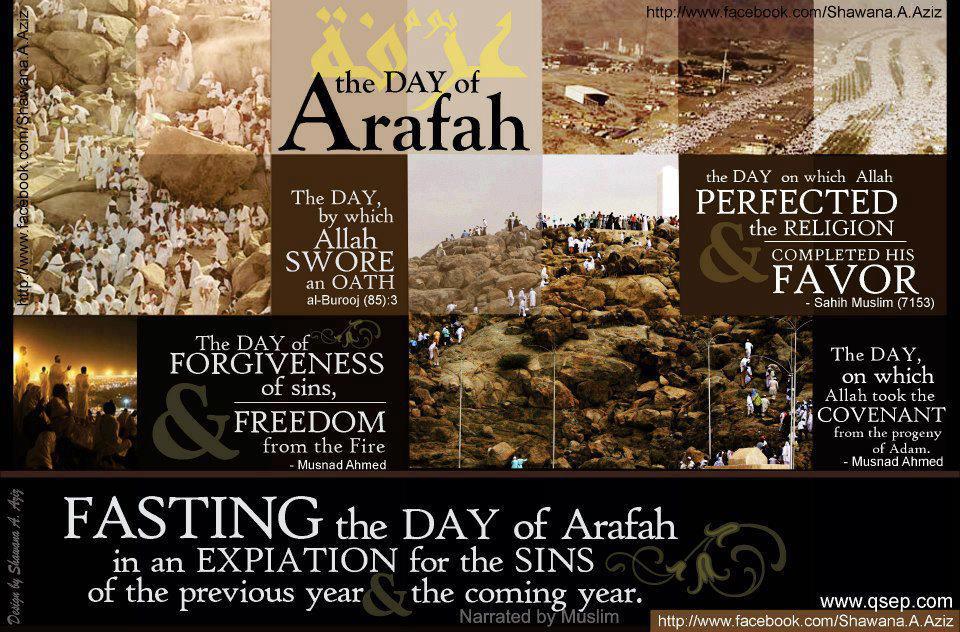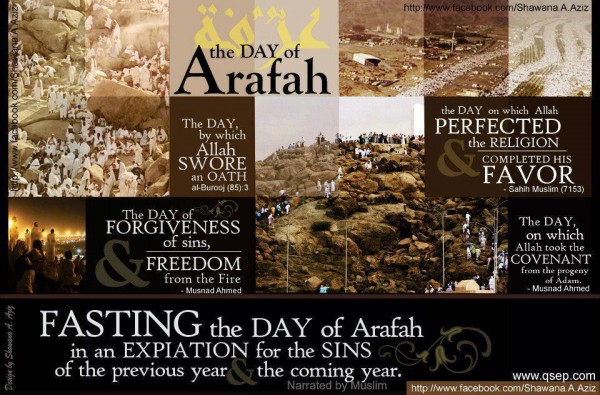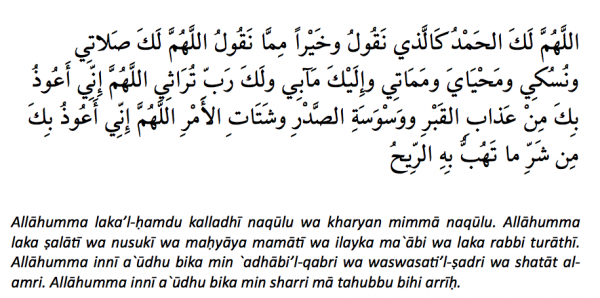
Source: Muwasala.org
http://muwasala.org/the-day-of-arafah/
The magnificent ten days of Dhu’l-Ḥijjah are almost over and we are approaching their climax, which is the Day of `Arafah, the 9th of Dhu’l-Ḥijjah. On this day there is an immense outpouring of divine mercy and bounty and it is considered by many scholars to be the best day of the year.
The Prophet صلى الله عليه وسلم said there is no day in which Allah saves more people from the fire than the Day of `Arafah. It has also been narrated that anyone who has an atom’s weight of faith in their heart will be forgiven by Allah on this day, whether or not they actually stand at `Arafah.
The Messenger of Allah صلى الله عليه وسلم taught those not on Ḥajj to fast on this day with the promise that this would wipe away the wrongdoings of the previous year and the wrongdoings of the year to come. What is meant by the wrongdoings of the coming year being wiped out?
The scholars mention that it is either protection from falling into them in the coming year or that if we fall into them, we will be forgiven. The wrongdoings mentioned are “minor” sins between a person and Allah, not cases where one person has wronged another. This is an immense gift from Allah to the Ummah of His Beloved صلى الله عليه وسلم.
We should also turn to Allah to ask for forgiveness and for our needs to be answered, especially in the afternoon of this day. In doing so we imitate the people standing at `Arafah, to whom forgiveness is guaranteed, and we ask Allah to give to us what He is giving to them. As the Prophet صلى الله عليه وسلم said: “The one who imitates a people is one of them.”
We should apportion some time to recitation of the Qur’ān. It has been narrated that whoever reads Sūrat al-Ikhlāṣ one thousand times will be given whatever they ask for.
We should also bestow prayers upon the Prophet صلى الله عليه وسلم, and spend time in other forms of remembrance, particularly tahlīl, or proclaiming the oneness of Allah. The Prophet صلى الله عليه وسلم said: “The best prayer is the prayer of the Day of `Arafah. The best thing which I and the Prophets before me have said is:
“There is no god but Allah, alone, He has no partners. To Him belongs the dominion and all praise and He has power over all things.”
Another narration contains the following addition to the previous prayer:
“O Allah, place light in my heart, my hearing and my sight. O Allah, My Lord bring tranquillity to my heart and give me ease in my affair.”
Sayyidunā `Alī narrates that the supplication that the Prophet made most on the Day of `Arafah was:
“O Allah, to You belongs all praise, as we praise You and better than that. O Allah, my prayer, worship, life and death are for You, and to You is my return. Everything I possess, my Lord, returns to You. O Allah, I seek refuge in You from the punishment of the grave, the whispering of the devil and from my affairs being in disarray. O Allah I seek refuge in You from the evil which the wind carries”.
If it is possible to gather with a group of people at this time then the reward is greater and the chance of acceptance is higher. This was the way of Sayyidunā `Abdullāh Ibn `Abbās and other companions and it is a tradition practiced today in Tarīm, Yemen where hundreds gather in an open square after `Aṣr to remember Allah and make du`ā’ until Maghrib.







